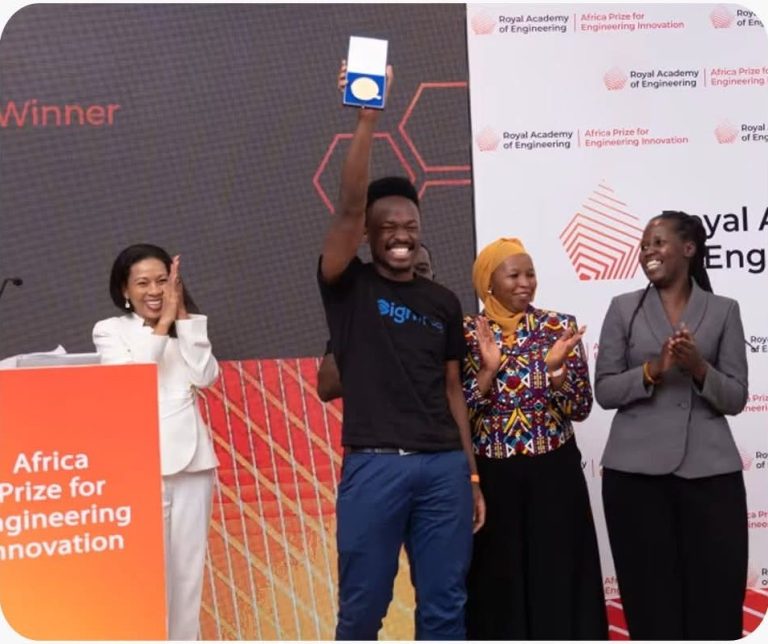A Kenyan entrepreneur, Elly Savatia, has won the prestigious Africa Prize for Engineering Innovation by the UK’s Royal Academy of Engineering for developing Terp 360 — an AI-powered app that translates speech into sign language in real time using 3D avatars.
Savatia described his innovation as “Google Translate for sign language,” explaining that Terp 360 converts speech and text into lifelike sign language animations, enabling seamless communication between deaf and hearing individuals without the need for human interpreters.
He received £50,000 ($67,000) on October 16 during a ceremony in Dakar, Senegal, emerging winner among four African finalists selected by a panel of seven judges.
“What really stood out about Elly’s solution was the level of innovation,” said Rebecca Enonchong, chair of the judging panel. “It shows that Africans are capable of using cutting-edge technology to solve real-world problems both on the continent and beyond.”
The AI system behind Terp 360 is trained using motion sensors that capture and replicate hand movements in space. Savatia said the app was co-developed with Kenya’s deaf and hard-of-hearing community to record over 2,300 signs, including common words and phrases.
He noted that deaf people in Kenya often face barriers in accessing education, healthcare, and employment because few service providers know sign language — and human interpreters are both scarce and costly.
“Companies cannot afford interpreters and lack tools to integrate deaf people effectively,” Savatia explained. “We see ourselves as enablers — we can do sign language, but at scale.”
While similar technologies exist globally, Savatia emphasized that Terp 360 was built with African sign languages and cultural context in mind. There are over 300 sign languages worldwide and about 30 across Africa. Currently, the app translates English and Swahili into Kenyan Sign Language, but plans are underway to expand coverage to Rwandan, Ugandan, South African, British, and American sign languages by 2027.
To scale, Terp 360 plans to partner with local NGOs and media organizations that have visual sign language datasets. A new motion capture studio in Nairobi will also allow the team to record up to 1,000 new words daily.
“Assistive technologies like this are underserved globally,” said Enonchong. “Savatia’s solution works — and it can truly transform lives.”


